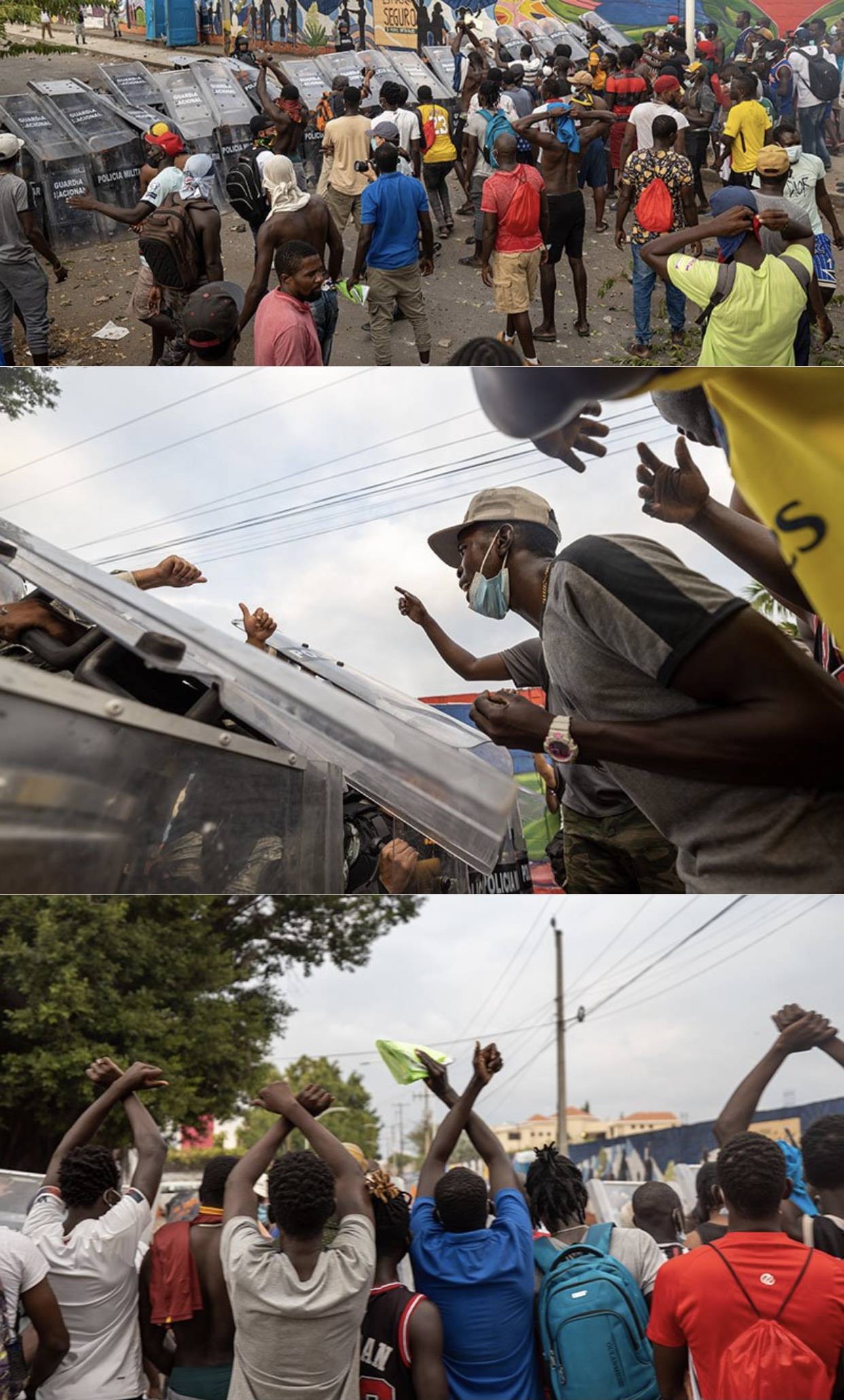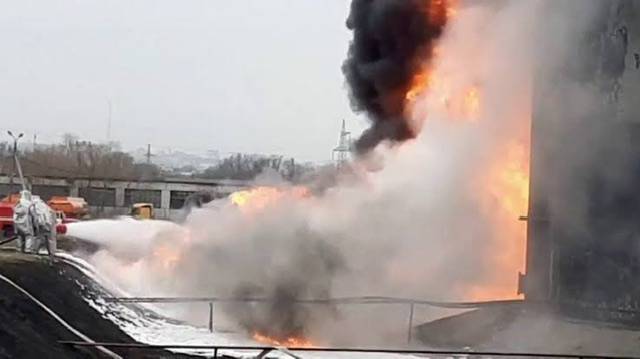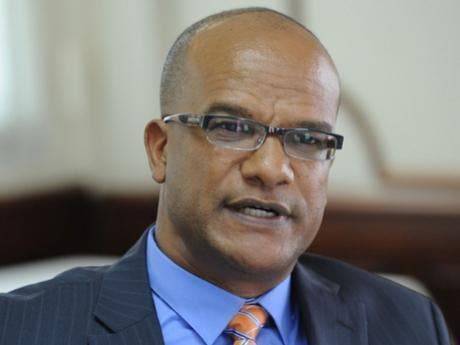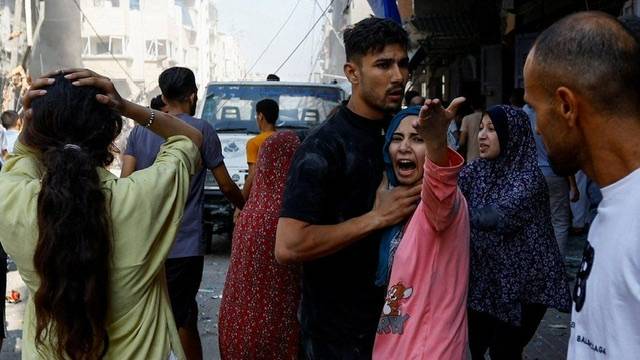Black migrants see nothing in Tapachula but racism and a dead end

The wide street leading to the Instituto Nacional de Migración is lined with bright and bold murals affirming the human rights of all people without regard to their country of origin.
However, many of the hundreds of Black migrants from Africa and Haiti who daily wait outside the office of INM say immigration officials, and the Mexican government in general, have failed to live up to those words.
Migrants from across the globe can be seen on this street, clutching folders with immigration documents, hoping to expedite appointments with INM that are scheduled six to eight months out. Without proper documentation from Mexico, they’re stuck in Tapachula, more than 1,200 miles south of their U.S. destinations.
But particularly among Black migrants, the tension, anxiety, frustration and, in a growing number of cases, anger, are the only things more palpable and intense than the humid heat. They believe that their applications for humanitarian visas or asylum, which would potentially allow them to pass through Mexico or find legal work and assistance, are being delayed because of the color of their skin.
Because of these delays, many migrants and their families sleep in parks near the INM building or just outside it, hoping to save their place in line for a chance to make their cases to immigration authorities.
“We are suffering here! We don’t have no money, we sleep out in the street!” said Sidike Kamora, 17, a migrant from Liberia among the throng waiting outside the INM office one afternoon.
“They only take white people,” he said. “I don’t know why Black people suffer everywhere, when you go inside you only see White people. It’s not fair.”
In 2019 and ’20, Mexican authorities detained more than 10,000 African and Haitian migrants passing through Tapachula on their way north, according to a report by the migration policy institute a nonpartisan organization that conducts research and analyses regarding world migration and provides insight into migration policies for countries around the world.
Migrants from Cameroon, Congo, Eritrea and other parts of Africa are fleeing violence, political instability and persecution. Haitians have left their island nation – already the poorest nation in the Western Hemisphere – in waves since an enormous earthquake in 2010 that killed more than 200,000 people. After another earthquake in 2018 and the assassination of Haiti’s president last year, Haiti has descended into chaos, where kidnappings are common and local gangs, vying for territory and power, shoot it out in the streets.
Before 2019, most migrants entering Mexico through its southern border were detained and issued an exit permit requiring them to leave the country within 20 to 30 days. However, in the summer of 2019, then-U.S. President Donald Trump threatened Mexico with stiff economic tariffs if the country did not take serious action to halt migration into the United States.
In response, Mexican President Andres Manuel Lopez Obrador deployed the Mexican national guard to enforce what has been referred to as an ad-hoc immigration policy that essentially uses Tapachula as a holding bay, thereby preventing migrants from continuing north.
The Biden administration has attempted to reverse some Trump era policies that kept migrants stalled in Mexico, and in June the U.S. Supreme Court ruled that Biden can stop the Migrant Protection Protocols, known as the “Remain in Mexico” program, but it’s not clear what immediate effect the ruling will have for migrants now stuck in Mexico.
Although all migrants in Tapachula have been affected, Black migrants say they face additional hurdles: racism and xenophobia.
Their claims are supported in an October 2021 report by the Migration Policy Institute“African migration through the Americas”found that African migrants face unique challenges compared with migrants from Latin America.
In 2019 and ’20, Mexican authorities detained more than 10,000 African and Haitian migrants passing through Tapachula on their way north,according to a report by the Migration policy Institute a nonpartisan organization that conducts research and analyses regarding world migration and provides insight into migration policies for countries around the world.
Migrants from Cameroon, Congo, Eritrea and other parts of Africa are fleeing violence, political instability and persecution. Haitians have left their island nation – already the poorest nation in the Western Hemisphere – in waves since an enormous earthquake in 2010 that killed more than 200,000 people. After another earthquake in 2018 and the assassination of Haiti’s president last year, Haiti has descended into chaos, where kidnappings are common and local gangs, vying for territory and power, shoot it out in the streets.
Before 2019, most migrants entering Mexico through its southern border were detained and issued an exit permit requiring them to leave the country within 20 to 30 days. However, in the summer of 2019, then-U.S. President Donald Trump threatened Mexico with stiff economic tariffs if the country did not take serious action to halt migration into the United States.
In response, Mexican President Andres Manuel Lopez Obrador deployed the Mexican national guard to enforce what has been referred to as an ad-hoc immigration policy that essentially uses Tapachula as a holding bay, thereby preventing migrants from continuing north.
The Biden administration has attempted to reverse some Trump era policies that kept migrants stalled in Mexico, and in June the U.S. Supreme Court ruled that Biden can stop the Migrant Protection Protocols, known as the “Remain in Mexico” program, but it’s not clear what immediate effect the ruling will have for migrants now stuck in Mexico.
Although all migrants in Tapachula have been affected, Black migrants say they face additional hurdles: racism and xenophobia.
Their claims are supported in an October 2021 report by the Migration Policy Institute. African Migration Through the American found that African migrants face unique challenges compared with migrants from Latin America.






0 Comment